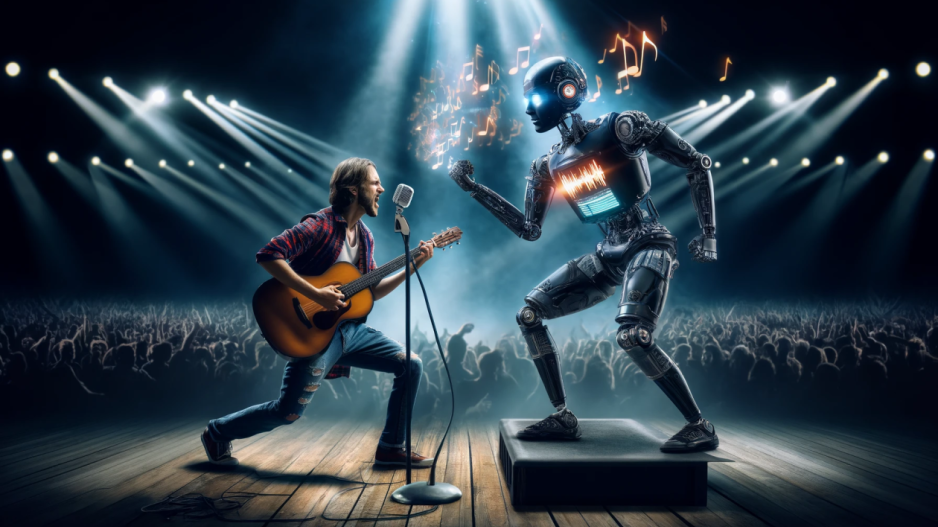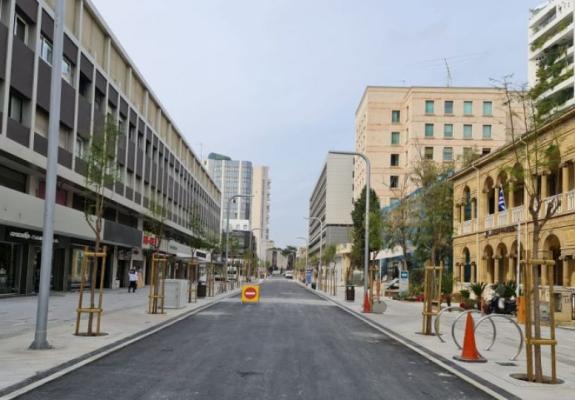Will AI Threaten the Livelihoods of Music Creators? A Study Reveals Alarming Projections
AI holds the power to unlock exciting opportunities—but poorly regulated, generative AI also has the potential to cause significant harm to human creators, their careers, and livelihoods.
Workers in the music industry are expected to lose nearly a quarter of their income due to AI over the next four years, according to the first global economic study examining the technology's impact on human creativity. Similarly, those in the audiovisual sector are projected to see a more than 20% reduction in earnings as the AI market grows from an estimated €3 billion annually to €64 billion by 2028.
The findings were unveiled in Paris by the International Confederation of Societies of Authors and Composers (CISAC), representing over 5 million creators worldwide. The report concluded that while the rapid rise of AI will significantly benefit tech giants, music creators’ rights and income streams are poised for a steep decline. CISAC has urged policymakers to intervene urgently to address these challenges.
According to Björn Ulvaeus, CISAC’s president and former member of ABBA, Australia and New Zealand are at the forefront of developing policies to protect creators against generative AI.
“Australia’s new Senate Select Committee on AI is encouraging and promising,” Ulvaeus stated. “By setting a gold standard in AI policy, protecting creators' rights while fostering responsible innovation, Australia and New Zealand can ensure AI serves as a tool to enhance human creativity rather than replace it. The world is watching, and decisions made will resonate far beyond these countries.”
The Australian Senate Select Committee recently released its final report on the future impacts of AI, issuing 13 recommendations, including autonomous AI legislation and stronger protections for creative workers.
Dean Ormston, CEO of Australian music rights organization Apra Amcos, stressed the urgency of governmental action. “This global report recognizes the incredible opportunities AI presents but also highlights the urgent need to protect creators’ rights and incomes worldwide. Creators stand to lose the most,” Ormston said.
“Our industry thrives on human creativity. Songwriters, composers, and music publishers are at the heart of what makes Australia and New Zealand’s cultural exports unique. We must ensure robust protections, particularly for Indigenous Cultural and Intellectual Property, so AI platforms respect First Nations protocols rather than exploit them. Governments must act decisively to secure the livelihoods of creators and the future of our creative industries.”
The study identified two primary risks for creators under current regulatory frameworks in most countries. First, the unauthorized use of their works by generative AI models threatens to diminish royalties. Second, AI-generated outputs will compete with human creations, further reducing job opportunities.
By 2028, AI-driven music is expected to account for 20% of traditional music streaming revenues and 60% of music library revenues. Developers and AI providers in the music industry are forecasted to earn €4 billion (up from €0.1 billion in 2023), while audiovisual AI providers could generate €5 billion over the same period.
“These revenues will come directly from the unlicensed reproduction of creators’ works, representing a transfer of economic value from creators to AI companies,” the report warned.
“AI holds the power to unlock exciting opportunities—but poorly regulated, generative AI also has the potential to cause significant harm to human creators, their careers, and livelihoods,” Ulvaeus said.
“Which of these scenarios will prevail? This largely depends on the choices policymakers make during ongoing legislative reviews worldwide. Getting these regulations right is crucial to safeguarding creators’ rights and fostering an AI ecosystem that respects human creativity and culture.”






